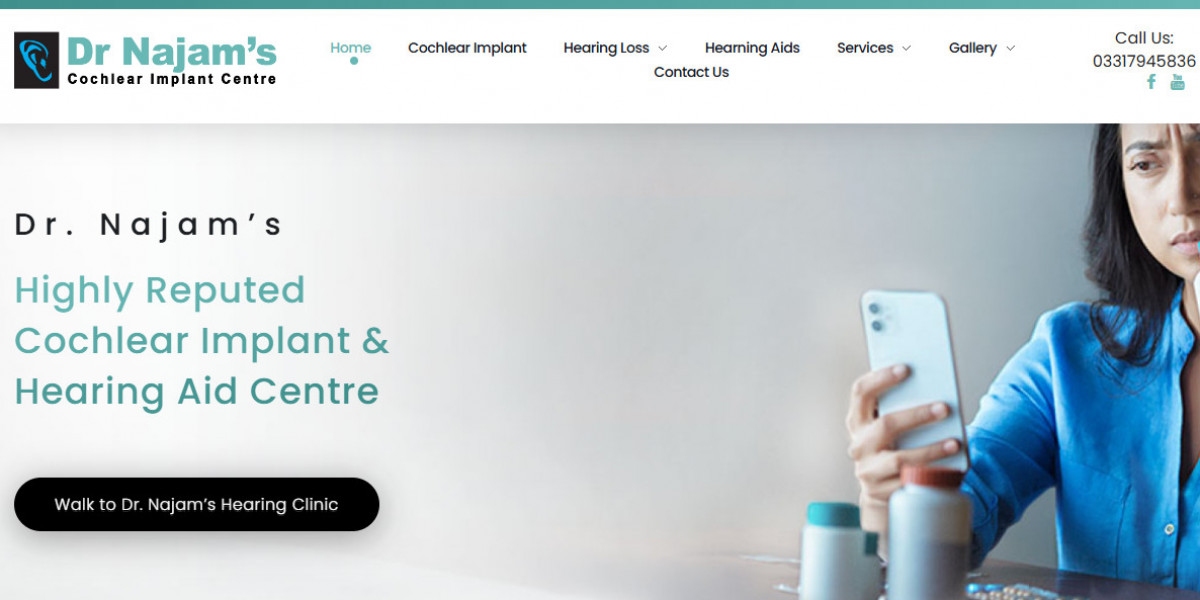What is a Child Cochlear Implant?
A child cochlear implant is an electronic medical device designed to provide a sense of hearing to children who are profoundly deaf or severely hard of hearing. Unlike hearing aids, which amplify sounds, a cochlear implant bypasses damaged hair cells in the cochlea and directly stimulates the auditory nerve using electrical signals. These signals are then interpreted by the brain as sound.
The device consists of two components:
External Component: Includes a microphone, speech processor, and transmitter worn behind the ear.
Internal Component: Surgically implanted under the skin and into the cochlea.
This medical technology helps children develop speech and language skills essential for communication and integration into mainstream education.
? Ideal Age for Cochlear Implantation in Children
Experts recommend early implantation—preferably between 12 to 24 months of age—for the best results. The earlier the child receives the implant, the higher the chances of developing near-normal speech and language skills. This is because the brain's auditory centers are most receptive during early childhood.
In cases where hearing loss is diagnosed later, children up to the age of 5 or even older may still benefit significantly from the procedure, although outcomes might vary.
? Eligibility Criteria for a Child Cochlear Implant
Not every child with hearing loss is a candidate for cochlear implants. Eligibility is determined through several assessments, including:
Audiological Evaluation
To confirm the severity and type of hearing loss.Imaging Tests (MRI/CT Scans)
To examine inner ear anatomy and cochlear nerve integrity.Medical Examination
To ensure the child is fit for surgery and free of any chronic ear infections.Speech and Language Assessment
Helps establish a baseline and determine post-implantation therapy needs.
? The Surgical Process and Recovery
Cochlear implantation is a safe and relatively straightforward surgical procedure performed under general anesthesia. The surgery typically lasts 2–4 hours, and most children are discharged within a day.
Recovery Steps:
Healing Phase (2–4 weeks) before activation of the implant.
Device Activation (Mapping) where the audiologist programs the external processor.
Ongoing Speech Therapy and Auditory Training to help the child adapt to hearing through the device.
Regular follow-up visits are essential for adjusting the device settings and monitoring the child’s progress.
? Benefits of Cochlear Implants in Children
Opting for a child cochlear implant offers numerous long-term advantages, including:
Improved speech recognition and spoken language skills
Better academic performance and social interaction
Enhanced quality of life for both child and family
Higher chances of integrating into mainstream schools rather than special education
Moreover, many children with cochlear implants grow up to live fully independent lives, attend regular schools, and pursue successful careers.
? Challenges and Considerations
While cochlear implants offer life-changing benefits, parents should also be aware of the challenges involved:
The implant does not "cure" deafness; it provides a different way of hearing.
Intensive post-implantation therapy is necessary for optimal results.
There is a risk of surgical complications, though rare.
Battery and equipment maintenance can be a financial and technical burden for some families.
It’s essential to have realistic expectations and commit to long-term rehabilitation to ensure the best possible outcomes.
? Cochlear Implant Programs in Pakistan
In Pakistan, several leading hospitals offer specialized services for child cochlear implant procedures:
Aga Khan University Hospital, Karachi
Indus Hospital, Karachi (free of cost for eligible families)
Children’s Hospital, Lahore
Shifa International Hospital, Islamabad
Many of these hospitals partner with NGOs and government-funded programs to provide subsidized or free cochlear implant services to children from low-income families.
? The Role of Parents and Caregivers
The success of a cochlear implant depends largely on the dedication of parents and caregivers. From attending therapy sessions to practicing hearing exercises at home, family involvement is crucial. Early and consistent support accelerates speech development and boosts the child’s confidence in social settings.
A child cochlear implant can be a life-changing decision that opens a world of sound, communication, and possibilities. When done at the right time and followed by consistent auditory rehabilitation, cochlear implants help children lead fulfilling lives, both academically and socially. If your child is struggling with profound hearing loss, consult with a certified audiologist or ENT specialist to explore this remarkable option.








